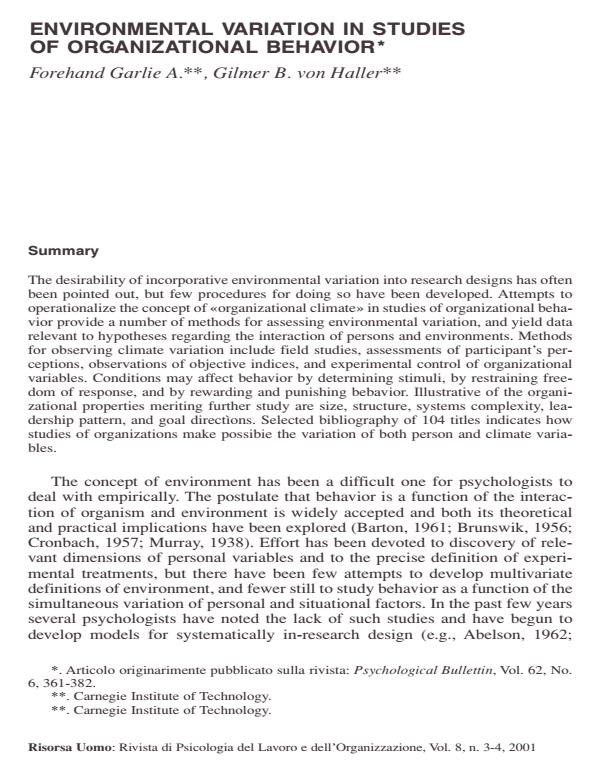Environmental variation in studies of organizational behavior
Titolo Rivista RISORSA UOMO
Autori/Curatori Forehand Garlie A., Gilmer B. von Haller
Anno di pubblicazione 2002 Fascicolo 2001/3-4 Lingua Italiano
Numero pagine 26 P. Dimensione file 116 KB
DOI
Il DOI è il codice a barre della proprietà intellettuale: per saperne di più
clicca qui
Qui sotto puoi vedere in anteprima la prima pagina di questo articolo.
Se questo articolo ti interessa, lo puoi acquistare (e scaricare in formato pdf) seguendo le facili indicazioni per acquistare il download credit. Acquista Download Credits per scaricare questo Articolo in formato PDF

FrancoAngeli è membro della Publishers International Linking Association, Inc (PILA)associazione indipendente e non profit per facilitare (attraverso i servizi tecnologici implementati da CrossRef.org) l’accesso degli studiosi ai contenuti digitali nelle pubblicazioni professionali e scientifiche
The desirability of incorporative environmental variation into research designs has often been pointed out, but few procedures for doing so have been developed. Attempts to operationalize the concept of «organizational climate» in studies of organizational behavior provide a number of methods for assessing environmental variation, and yield data relevant to hypotheses regarding the interaction of persons and environments. Methods for observing climate variation include field studies, assessments of participant’s perceptions, observations of objective indices, and experimental control of organizational variables. Conditions may affect behavior by determining stimuli, by restraining freedom of response, and by rewarding and punishing bebavior. Illustrative of the organizational properties meriting further study are size, structure, systems complexity, leadership pattern, and goal directìons. Selected bibliography of 104 titles indicates how studies of organizations make possibie the variation of both person and climate variables.;
Forehand Garlie A., Gilmer B. von Haller, Environmental variation in studies of organizational behavior in "RISORSA UOMO " 3-4/2001, pp , DOI: